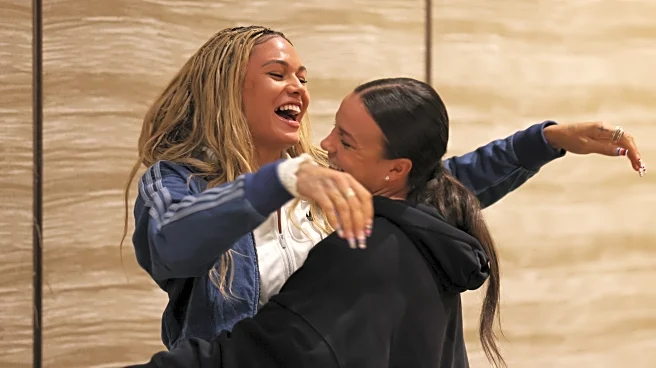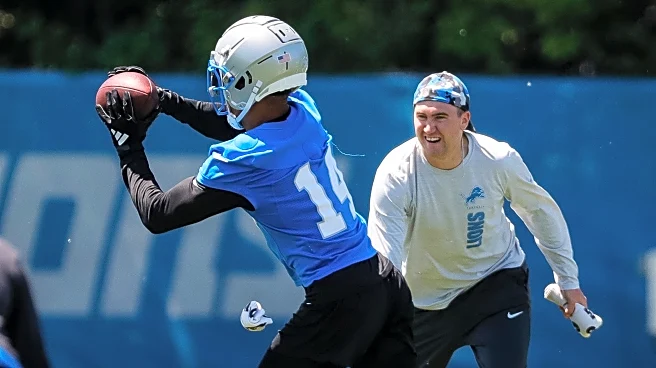What's Happening?
OpenAI is contesting a court order requiring the company to produce 20 million ChatGPT user conversations in a copyright lawsuit involving major newspapers, including the New York Times. The order, issued by Magistrate Judge Ona T. Wang, has been criticized
by OpenAI for its lack of consideration regarding the relevance and proportionality of the request. OpenAI argues that the order sets a dangerous precedent for privacy and data protection, as it involves the wholesale production of personal information.
Why It's Important?
This legal battle highlights significant concerns regarding user privacy and data protection in the context of artificial intelligence and machine learning technologies. The outcome of this case could influence how courts handle requests for large-scale data production in lawsuits involving AI companies. It also raises questions about the balance between legal discovery processes and the protection of user privacy, potentially impacting future litigation involving AI technologies.
What's Next?
OpenAI has filed a letter requesting the court to vacate the order, emphasizing the need for a more targeted approach to data production. The company is advocating for privacy-preserving options and has proposed alternatives to the New York Times, which were rejected. The court's decision on this matter will be closely watched by stakeholders in the AI industry, as it may set a precedent for how user data is handled in legal disputes.
Beyond the Headlines
The case underscores the ethical and legal challenges associated with AI technologies, particularly in terms of data privacy and user consent. It highlights the need for clear guidelines and regulations to govern the use and protection of personal data in AI applications. The dispute also reflects broader societal concerns about the implications of AI on privacy and the potential for misuse of personal information.

















